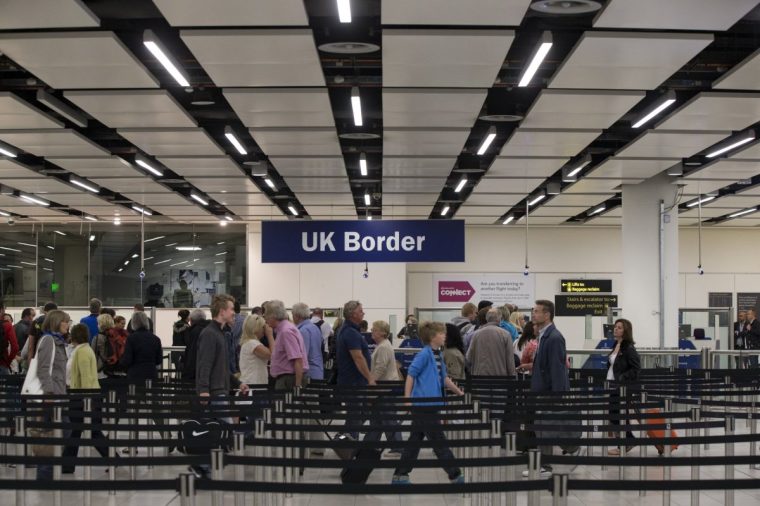EU Deal Revamps Travel for Brits: Four Improvements and Three Drawbacks
The Prime Minister has praised a fresh post-Brexit deal with the EU, which the Government claims will significantly reduce wait times. travellers heading to continental Europe for their holidays.
This week’s offer aims to reduce food costs, cut through bureaucracy, increase entry into the European Union market, and enhance the UK economy by £9 billion, according to Downing Street.
Nevertheless, it doesn’t encompass a wide range of post-Brexit travel issues. obstacles that will keep impacting British travelers.
The United Kingdom will keep engaging in discussions with the European Union on this matter. etails of each commitment.
E-Gates
The government has arranged an agreement which they claim will grant British citizens easier access to EU airport electronic gates, a step expected to reduce wait times at borders for vacationers.
But it’s unclear when the change would begin with Sir Keir Starmer saying he wanted UK holidaymakers to be able to use e-gates in EU countries “as soon as possible”.
And the agreement still needs approval from each individual member state, so there’s no guarantee it will go through. New steps will be implemented. by the summer holidays.
Since Brexit British visitors to Europe have faced lengthy queues at many European airports as they wait to have their passports stamped.

The deal announced on Monday will end “dreaded queues at border control”, the Government insists.
Nick Thomas-Symonds, who is heading the talks with Brussels, stated his aim was to secure an agreement enabling British passport holders "to move through much faster."
He stated: "It seems we can all concur that avoiding long lines and gaining additional free time, regardless of whether for vacations or business travels, to utilize as one pleases...would be quite a practical aim."
Youth mobility
The government has consented to discuss a youth exchange program with the European Union, enabling individuals under 30 years old to travel, work, and learn interchangeably within both Britain and Europe.
Nevertheless, Brussels has not yet agreed to impose a cap on the number of participants in the program, similar to the current agreements between the UK and nations such as Australia and New Zealand.
Starmer mentioned that the limit for how many individuals can participate in the program with the EU will be determined at a later time.
Last year, Brussels proposed a plan enabling individuals aged between 18 and 30 to reside within the EU for as long as four years; however, this proposal was dismissed by the previous Conservative administration.
In order to fulfill their promise of lowering net migration as stated in their manifesto, Labour proposed an annual limit with a set expiration date.
T The Conservatives might object to any relaxation of the rules regarding youth mobility, as Kemi Badenoch expressed her concern that it could lead to free movement through the "back door."

Pet passports
As part of the reset deal, cats and dogs will also be able to travel more easily, with the introduction of “pet passports”.
The government states that this move will remove the requirement for animal health certificates for each journey, providing an uplift following Labour's discussions on post-Brexit changes. After exiting the EU's pet passport system in 2021, British travelers heading to Europe were obligated to ensure their pets were microchipped, receive vaccinations against rabies, and obtain a health certificate.
Read Next: Trump calls Putin after Vance says Russian leader ‘doesn’t know how to end war’
Around a quarter of a million pet owners had taken their cats and dogs before the UK left the scheme at the end of a post-Brexit transition phase.
“We have always been clear that that kind of agreement can bring all kinds of benefits,” a Government source told The Telegraph prior to the UK-EU summit in London on Monday.
Erasmus
The accord additionally states that both Britain and the European Commission ought to collaborate with the aim of establishing "the UK’s association to the Erasmus+ program within the framework of the European Union."
The i Paper had disclosed in December That the UK might rejoin the programme, enabling British and EU youth to study in one another’s countries.
The Erasmus+ program was launched in 1987 and offers financial support for educational activities, professional development, or sports initiatives abroad lasting from two to twelve months within the European Union.
After Brexit, the UK left it and established the Turing Scheme as an alternative.
What aspects are missing from the Brexit reboot agreement?
Nevertheless, the updated agreement fails to address various additional travel issues faced by British citizens.
Touring artists
An agreement on enhanced accessibility for performers and creatives entering Europe remains unsettled. The pact merely states that the European Commission and the UK acknowledge "the importance of mobility and cultural as well as artistic exchanges, encompassing the work of roaming artists."

They will "keep working to encourage travel and cultural exchange," according to a leaked version of the agreement that was released in the media. Telegraph , reveals.
Following Brexit, limitations have been imposed on the number of days British citizens can spend in Europe, which has affected touring musicians.
British citizens can only be in Europe for 90 days in a 180-day period. But many shows tour for longer periods than that, while some artists have a concentration of work over certain periods, which are constrained by the limit, according to trade union Equity.
Equity has called for improved access to Europe for performing artists and creative workers to form part of this week’s EU-UK summit.
Nevertheless, specialists indicate that reaching an agreement could be complex since it would entail each block member country overhauling their customs regulations regarding artist movement across nations.
Biometric checks
The discussions do not include the upcoming biometric checks set to be implemented in October.
The much-delayed Entry/Exit System (EES) has prompted warnings from Kent officials. lines as long as 15 hours at Dover , where non-EU travelers have to provide their fingerprints and undergo facial recognition scans.

A new application from Brussels could streamline processes for British travelers by letting them pre-submit their information, potentially reducing wait times. However, this tool isn’t anticipated to launch until at least October.
The European Council and European Parliament have now reached an agreement that the Entry Exit System (EES) will gradually roll out over a period of six months starting in October. During this time, French authorities will conduct checks at border checkpoints in Dover, the St Pancras Eurostar station, and the Eurotunnel in Folkestone.
However, French authorities have cautioned that the risk of significant hold-ups at borders will increase unless additional policing resources are provided.
Mobile phone roaming data
Following Brexit, most UK mobile service providers now offer free mobile coverage exclusively within your home area.
Mobile phone companies probably won’t get rid of the roaming fees currently applied to British customers who use their phones within the EU.
The previous ban was a provision of the European single market, which the Government has firmly ruled out rejoining.
Post a Comment for "EU Deal Revamps Travel for Brits: Four Improvements and Three Drawbacks"